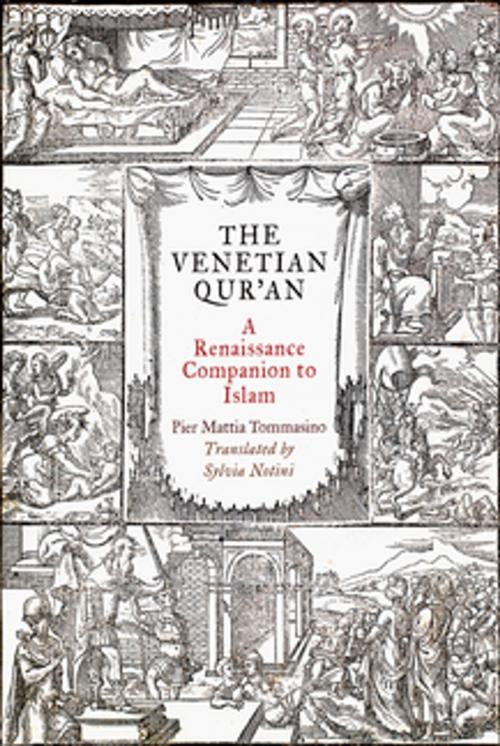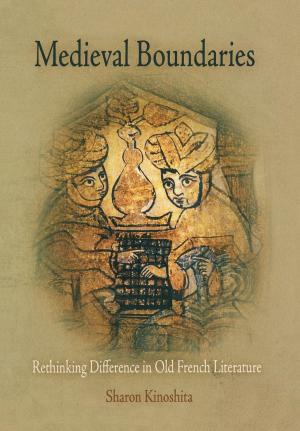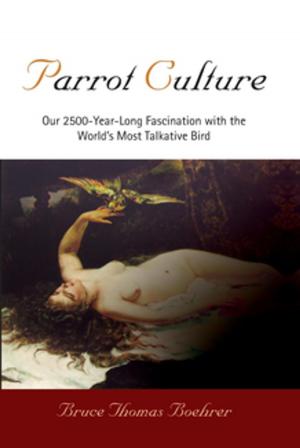The Venetian Qur'an
A Renaissance Companion to Islam
Nonfiction, History, Renaissance, Fiction & Literature, Literary Theory & Criticism, Religion & Spirituality| Author: | Pier Mattia Tommasino | ISBN: | 9780812294972 |
| Publisher: | University of Pennsylvania Press, Inc. | Publication: | March 26, 2018 |
| Imprint: | University of Pennsylvania Press | Language: | English |
| Author: | Pier Mattia Tommasino |
| ISBN: | 9780812294972 |
| Publisher: | University of Pennsylvania Press, Inc. |
| Publication: | March 26, 2018 |
| Imprint: | University of Pennsylvania Press |
| Language: | English |
An anonymous book appeared in Venice in 1547 titled L'Alcorano di Macometto, and, according to the title page, it contained "the doctrine, life, customs, and laws [of Mohammed] . . . newly translated from Arabic into the Italian language." Were this true, L'Alcorano di Macometto would have been the first printed direct translation of the Qur'an in a European vernacular language. The truth, however, was otherwise. As soon became clear, the Qur'anic sections of the book—about half the volume—were in fact translations of a twelfth-century Latin translation that had appeared in print in Basel in 1543. The other half included commentary that balanced anti-Islamic rhetoric with new interpretations of Muhammad's life and political role in pre-Islamic Arabia. Despite having been discredited almost immediately, the Alcorano was affordable, accessible, and widely distributed.
In The Venetian Qur'an, Pier Mattia Tommasino uncovers the volume's mysterious origins, its previously unidentified author, and its broad, lasting influence. L'Alcorano di Macometto, Tommasino argues, served a dual purpose: it was a book for European refugees looking to relocate in the Ottoman Empire, as well as a general Renaissance reader's guide to Islamic history and stories. The book's translation and commentary were prepared by an unknown young scholar, Giovanni Battista Castrodardo, a complex and intellectually accomplished man, whose commentary in L'Alcorano di Macometto bridges Muhammad's biography and the text of the Qur'an with Machiavelli's The Prince and Dante's Divine Comedy. In the years following the publication of L'Alcorano di Macometto, the book was dismissed by Arabists and banned by the Catholic Church. It was also, however, translated into German, Hebrew, and Spanish and read by an extended lineage of missionaries, rabbis, renegades, and iconoclasts, including such figures as the miller Menocchio, Joseph Justus Scaliger, and Montesquieu. Through meticulous research and literary analysis, The Venetian Qur'an reveals the history and legacy of a fascinating historical and scholarly document.
An anonymous book appeared in Venice in 1547 titled L'Alcorano di Macometto, and, according to the title page, it contained "the doctrine, life, customs, and laws [of Mohammed] . . . newly translated from Arabic into the Italian language." Were this true, L'Alcorano di Macometto would have been the first printed direct translation of the Qur'an in a European vernacular language. The truth, however, was otherwise. As soon became clear, the Qur'anic sections of the book—about half the volume—were in fact translations of a twelfth-century Latin translation that had appeared in print in Basel in 1543. The other half included commentary that balanced anti-Islamic rhetoric with new interpretations of Muhammad's life and political role in pre-Islamic Arabia. Despite having been discredited almost immediately, the Alcorano was affordable, accessible, and widely distributed.
In The Venetian Qur'an, Pier Mattia Tommasino uncovers the volume's mysterious origins, its previously unidentified author, and its broad, lasting influence. L'Alcorano di Macometto, Tommasino argues, served a dual purpose: it was a book for European refugees looking to relocate in the Ottoman Empire, as well as a general Renaissance reader's guide to Islamic history and stories. The book's translation and commentary were prepared by an unknown young scholar, Giovanni Battista Castrodardo, a complex and intellectually accomplished man, whose commentary in L'Alcorano di Macometto bridges Muhammad's biography and the text of the Qur'an with Machiavelli's The Prince and Dante's Divine Comedy. In the years following the publication of L'Alcorano di Macometto, the book was dismissed by Arabists and banned by the Catholic Church. It was also, however, translated into German, Hebrew, and Spanish and read by an extended lineage of missionaries, rabbis, renegades, and iconoclasts, including such figures as the miller Menocchio, Joseph Justus Scaliger, and Montesquieu. Through meticulous research and literary analysis, The Venetian Qur'an reveals the history and legacy of a fascinating historical and scholarly document.















